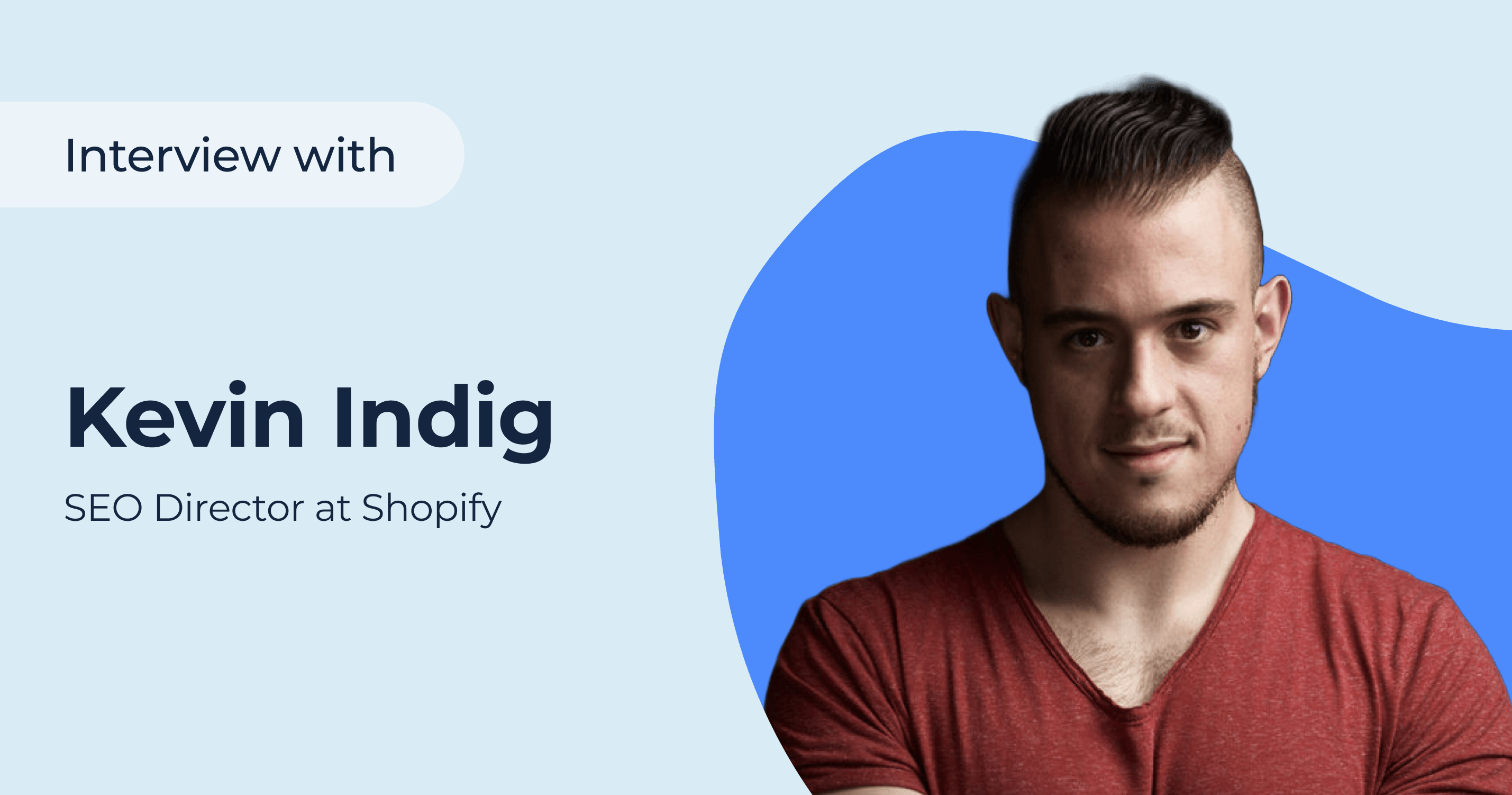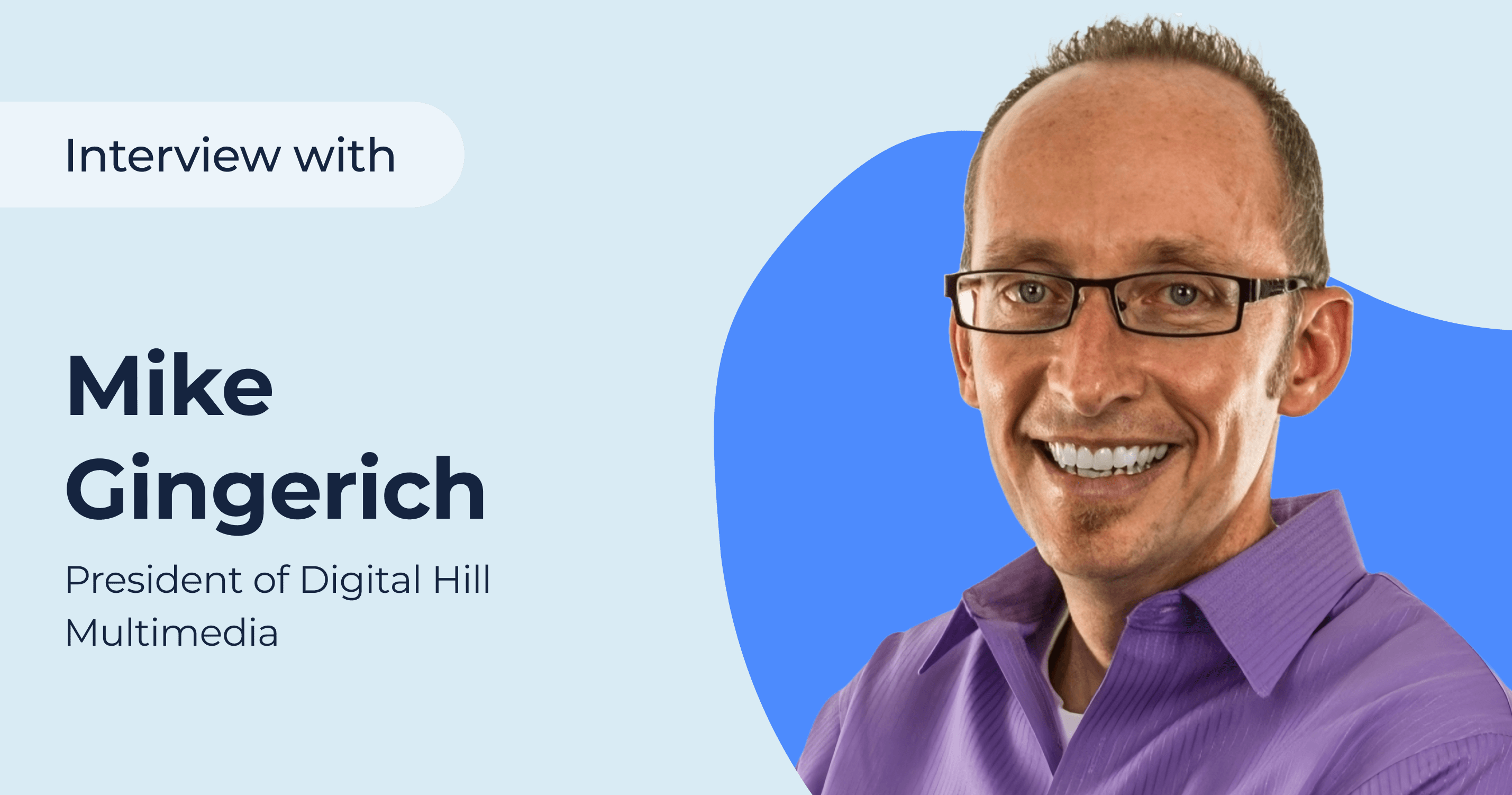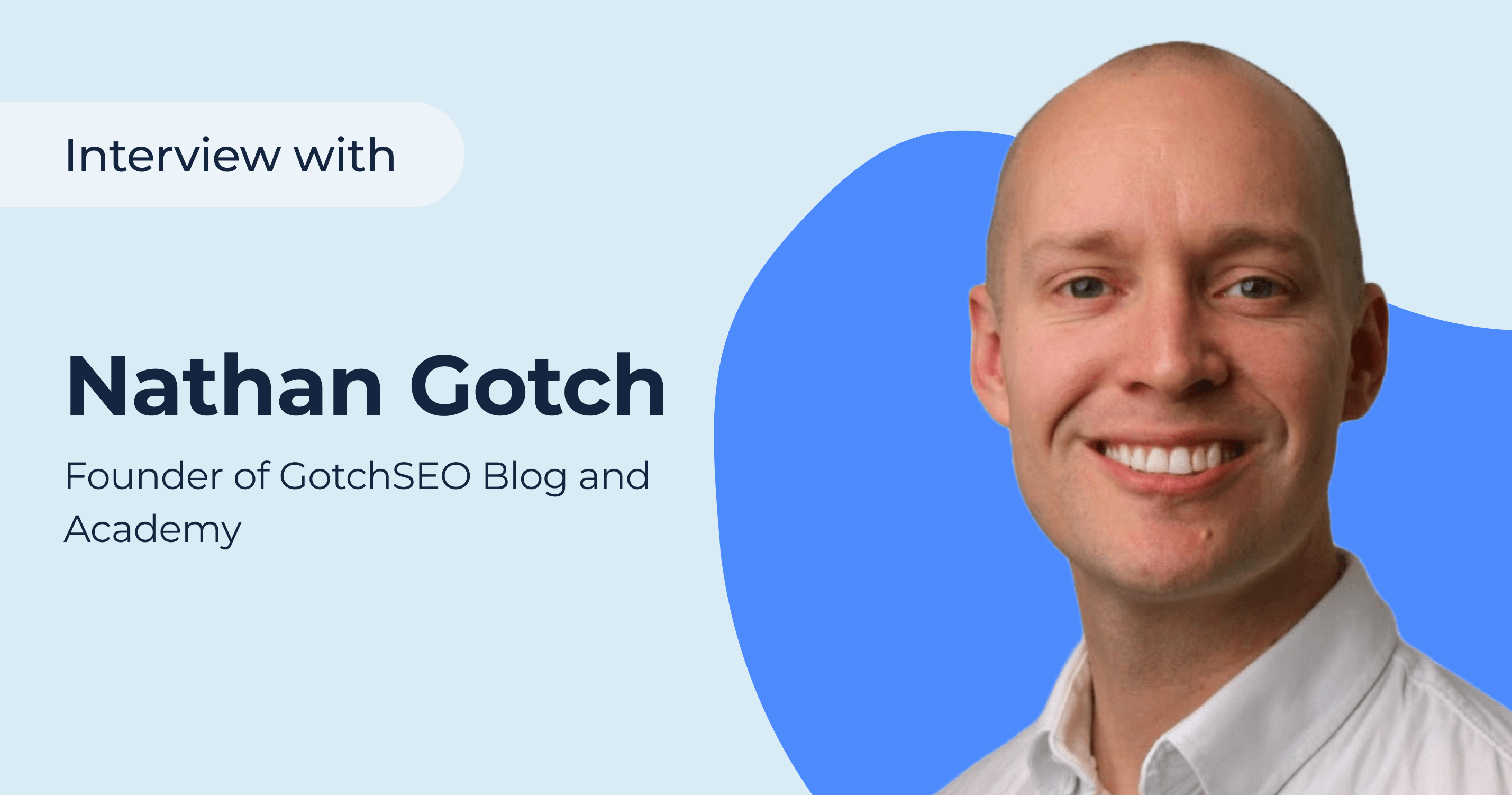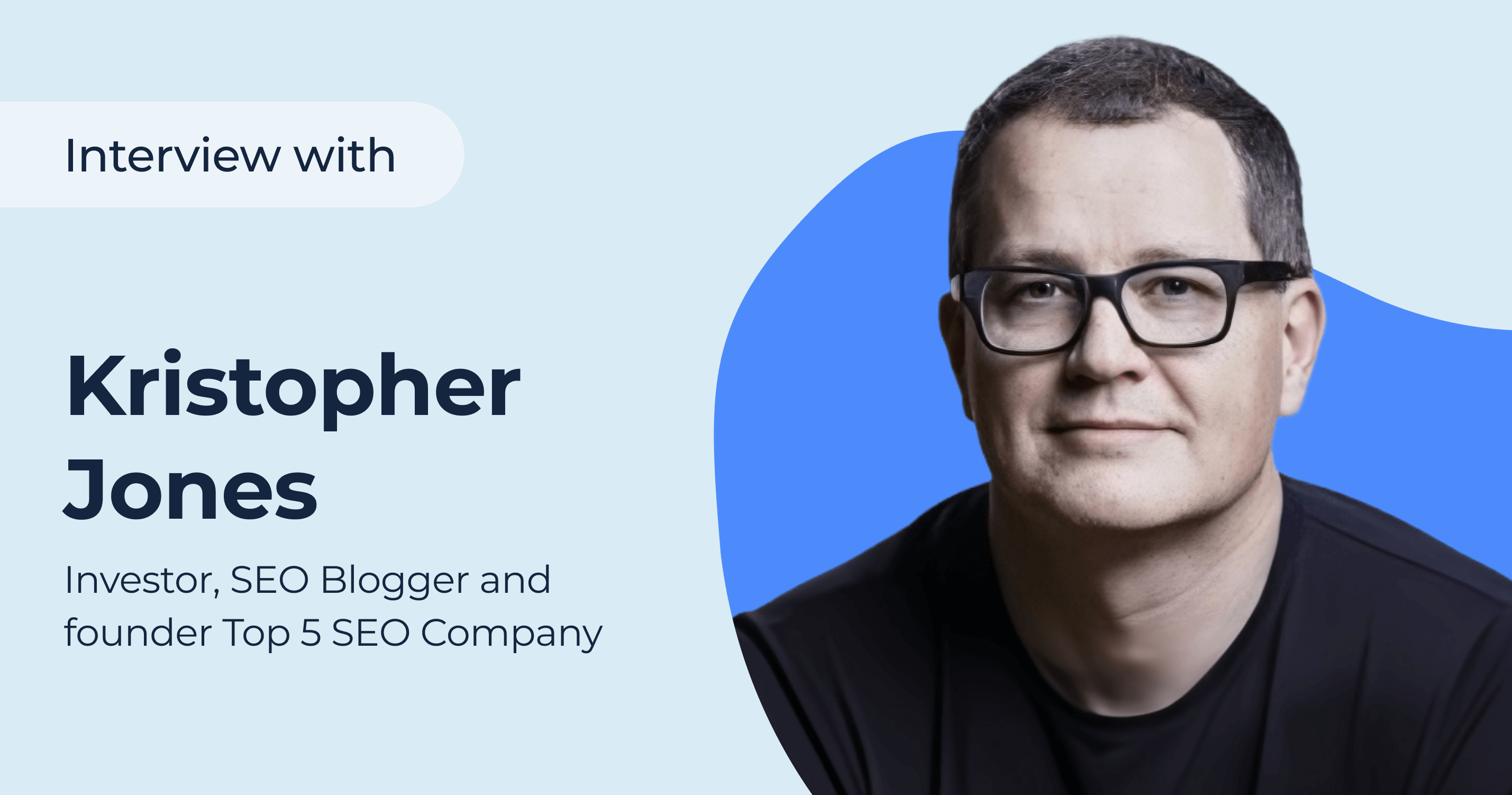Kevin Indig is the SEO Director at Shopify, creator of the Growth Memo newsletter and host of the Tech Bound podcast. Before Shopify, he ran SEO & Content at G2 and Atlassian and helped companies like eBay, Eventbrite, Samsung, Pinterest, and many others multiply their organic traffic.
1. How many years of experience in digital marketing do you have? What are your favorite projects?
I started earning a paycheck in SEO about 11 years ago but I’ve been dwelling in the space for longer. I was lucky to work on a lot of sites, from ebay.com to atlassian.com, g2.com, and shopify.com. Every project is unique in its own way.
2. What do you do to further your own SEO knowledge and skills?
Most of my skill development comes from working on complicated problems and testing. These days, I don’t consume a lot of SEO content anymore. Maybe a few case studies here and there because SEO is a practical discipline.
80% of SEO theory is quick to learn. It just takes a couple of months. From there, it takes years of experience and experiments to go deep and constantly find new levers.
3. What is your day-to-day job in Shopify like?
I lead a team of 25 SEOs, so my day skews heavily towards 4 things:
- Meetings: 1on1s, team meetings, stakeholder meetings;
- Decision making;
- Problem solving;
- Communicating.
I have to be intentional about making time to think and get stuff done. There is a constant pull on my calendar that I need to juggle.
4. You have launched a successful weekly newsletter: “Growth Memo”. What you can recommend to beginners on how to increase their newsletter audience?
A lot comes from the content, the product, itself. I treat it like a software product with the difference that it’s a knowledge product. People subscribe for the information and pay with their attention. There was a time when I charged for the newsletter but I gave that up because it took too much of my time away from Shopify.
I went through many iterations with the Growth Memo: in the beginning, it was just a list of curated articles. Now, it’s a weekly essay. I did and still do a lot of audience research to understand how I can improve the Growth Memo. Inboxes are competitive landscapes and attention is quick to lose. Unsubscribing is really easy. So, I suggest beginners to work toward something people truly want to read.
Growing an audience is much easier when the content hits. I share key data and charts on Twitter and Linkedin, but most subscribers come from a) some of my content that ranks in organic search and b) referrals from others. So, it all goes back to content ;).
5. What did your biggest professional failure teach you?
So many things! Reality is, I fail all the time. The key is failing well, minimizing consequences, and reframing failure as a lesson.
One recent failure taught me that alignment has a 360 degree angle. You need to align:
- With your manager/leadership (upwards).
- With people reporting up to you (downwards).
- With your peers (sidewards).
That part is forgotten in SEO and management overall, but so important to get stuff done. Alignment opens doors.
6. What factor would you wish to modify/add/remove with Google’s algorithm and why?
The title rewrites could go away again, in my mind ;-). I just don’t see this change improving search. I have yet to come across an instance in which the rewritten title is truly better.
7. What SEO tactics do you think are underrated?
Title and snippet optimization. Most SEOs just aren’t very creative in this area. They aim to trim titles and descriptions to the max length and maybe add schema here and there.
But there is so much more to be squeezed out of this lever! It’s more than a ranking signal, it’s also a way to increase CTR and draw more traffic to your site, even when you already rank on position 1.
8. What are the most important principles of an ideal SEO team structure?
Alignment toward goals and levers! You want to look at an SEO team like a machine with inputs, outputs, and quality factors in between. So, you want to build around inputs (levers) that lead to the desired outcomes (goal). There are secondary factors like vertical and horizontal movement, individual strengths/weaknesses, and clear responsibilities. But the most important principle is to staff for impact.
9. What are your tips on how startups and entrepreneurs can use SEO to launch and grow their businesses?
Firstly, validate you have product/market-fit. If you don’t, invest your time into that before marketing.
Secondly, identify if SEO is a key channel for your business or not. If not, park it for later.
Thirdly, understand whether you can leverage users to create the content or if you need to create it yourself. For the former, it’s all about kickstarting UGC and technical SEO. For the latter, it’s all about creating strong content playbooks.
10. What are the most important soft SEO skills?
Some of the most important ones are communication, critical thinking, problem solving, professional writing, teamwork, digital literacy, leadership, negotiation, and resourcefulness. At the end of the day, figuring out what’s wrong or what to do is just one slice of the pie. Successful SEOs go further. They know how to sell, drive, and inspire to get stuff done and then iterate and refine.
11. What are the key reports that an SEO specialist should pay more attention to in Google Analytics?
- Organic traffic by (landing) page week-over-week, month-over-month, and year-over-year.
- User signals segmented by device (desktop and mobile).
- Search console integration in GA.
12. In your opinion, what are the top trends for SEO in 2022?
A growing trend is SEO testing. Google continues to ship algorithm updates that refine query understanding and introduce more of the ?-factor. The “?-factor” contains all the things that we don’t know about that Google evaluates when ranking search results.
When I started in SEO, we’d know about 80-90% of signals going into ranking. Today, that number is closer to 60-70%. In the future, it might get below 50%. As a result, we see more traffic fluctuations that we cannot explain. The way out of this is rigorous testing. That’s what I see as one of the main trends in 2022.
13. How do you make competitor analysis? Please provide a short 1-2-3 steps guide.
It very much depends on what I want to analyze: link profile, content strategy, technical optimization, or user experience.
One of the simplest ways to do competitor analysis is to:
- compare positions for a shared keyword;
- compare the ranking pages side-by-side;
- do a gap analysis on your page;
- ship a refinement that fills the gap(s);
- evaluate the results and refine.
14. What is your approach to developing an SEO strategy?
Everything starts with the goal. Where are you going? This goal better ties to a long-term vision. Next, you want to outline what success looks like. What numbers are you aiming to hit, what are the objectives? Then, you want to dig into the tactics and bigger projects that need to succeed for the strategy to work out. Lastly, explain what you need to succeed. Everything needs to stand on a logical construct that starts with the goal and tells a story about how you get there. The strategy is also tied to your team structure, by the way.
15. SEO is such a controversial thing. Every SEO specialist rates its success differently. What is your way to rate SEO success? What metrics do you look at?
SEO is controversial and rightfully so. SEO success needs to roll up to a metric that’s relevant to businesses. Traffic or ranks are not enough. It has to be a metric closer to revenue. Sometimes, it can be revenue itself, for example in e-commerce. SaaS companies, on the other hand, need to measure a number that reflects how the business works and how SEO contributes to it. An example would be “# of sign-ups from SEO”. In affiliate, it could be affiliate link clicks.
You get my drift, SEO needs to be measured in the value it adds to businesses. Organic traffic and ranks are only leading indicators. You also want to measure lagging indicators, and it might make sense to add operational metrics like “# of content pieces published”.
16. What are your tips for E-Commerce websites?
Here are three:
- Develop a strong testing muscle for your category and product pages!
- Optimize (and test) your snippets and lean on FAQ/how-to schema.
- Create a content strategy to strengthen your most important categories.
17. Have you ever used black hat and grey hat SEO tactics? What do you think about them?
These days, I only stumble over black hat tactics or hear about them, but don’t use any in my work at Shopify. I still do some gray hat (depends on how you define it) and try things out on my personal projects. But, at the end of the day, black and gray hat come with big risks that are often not in balance with their returns.
18. Have you ever run Google Ads campaigns? How do you combine Google Ads campaigns and SEO?
I have, and there is so much value Google Ads provide for SEO. You can pre-test user intent, content quality, and run A/B tests on content. On the flip side, SEO can optimize spend and ROAS when the channels are aligned. Both need to run together to compensate or reinforce each other.
From a simple Google Ads + Search Console integration to tying both channels together in your data lake, there is a lot that can be done. The key is to align and incentivize both teams to work together, which tends to skew in the other direction when not being intentional.
19. How to build a personal brand in 2022?
Find your niche, deliver high-quality content, talk to your audience, and most importantly… Stand out! Almost everything that I do with my personal branding stands out. You want to be one of a kind, but not so different that your audience cannot relate to you. Tactically, you need a website and want to lean toward video/audio. Blogs and text get less attention. The formats of the day are videos (stories + long-form) and podcasts.
20. Does your university degree help to succeed in SEO and digital marketing?
I don’t think it does but a university degree can make you more business savvy, help you build an initial network, and give you the credentials to start a career. It’s not a requirement but certainly helps.
21. What book has helped you the most over your career?
“Principles” by Ray Dalio. Everyone should read it twice.
22. Can you share your professional and business plans for the next 2-3 years?
I want to grow, build out my product management skills and keep investing in my team to build one of the best SEO teams out there. Personally, I want to cross the 10,000 subscribers mark for my newsletter “Growth Memo” (I’m about 60% there) and refine the format for my podcast “Tech Bound”.
23. How do you see the future of SEO (in 5 years)?
Search as we see it will still exist but Google has more app-like features, give more direct answers, display more information in the search results in the form of videos, images, and audio. Users will use more than text or voice to input results but also use pictures of things they see in the real world to show what they’re looking for. There are lots of variables in this equation. Will Amazon build out its dominance in e-commerce search? Will anybody challenge Youtube? How will the social landscape change? All this and more is what I cover in the Growth Memo.





